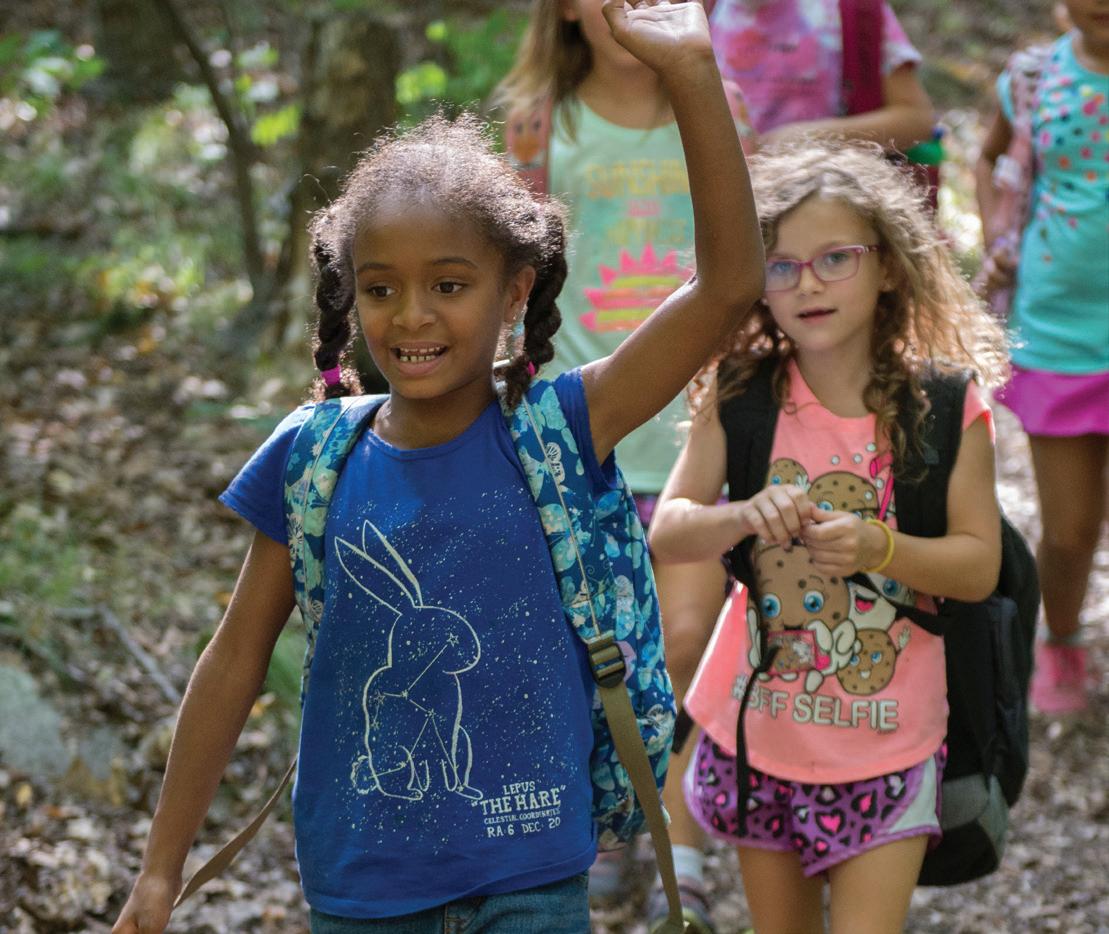
2 minute read
Homesickness
Though not very often, common, or long-lasting, homesickness can occur at camp. We have experienced staff that are trained to work with homesick campers. If it occurs, homesickness usually happens in the beginning of the week and quickly dissipates as the camper gets settled in to camp life. The first few hours and days are a normal transition phase for everyone and it is typical for girls to all adjust at different paces. There are a few things a parent can do ahead of time to help prevent long-lasting homesickness:
• Explain what homesickness is and let her know that it is normal, what it might feel like, and that it will go away. • Give her some ideas of things she can do to help alleviate homesick feelings, like: Think about the fun things you will be doing later. Take a special stuffed animal or book that makes her feel secure. Talk to your counselor or a friend. • Show confidence that your daughter will do great and will not experience too much homesickness. • Let her know that you want her to have a good time and make new friends. • Avoid bargaining. Saying something like, “if you’re really homesick, I promise I’ll come pick you up right away,” sends the message to your daughter that you are not confident in her ability to succeed. • Provide her with stationary and self-addressed and stamped envelopes to write you notes. • Consider preparing letters and bringing them to check in to be delivered to your girl throughout the week. • Do not suggest that she call you if she is feeling homesick. Often, calling home makes homesickness worse and campers do not have access to the camp phone. • Lastly, should your daughter ask, “what if I get homesick?” remind her of the many people at camp who are there to help.
Here are a few things to remember once you have checked your camper in at summer camp: • Once you get your camper checked in, try to leave as soon as possible so your camper can start making new friends and get involved with activities. • Keep upbeat when you say goodbye. Save your tears until you get to the car where you camper won’t see you. • Be aware that your camper’s counselors will engage the girls in singing songs and playing games as soon as you leave.



